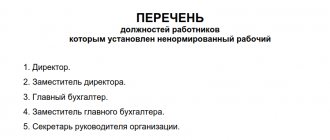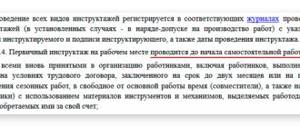ACTIONS OF AN EMPLOYER IF AN EMPLOYEE IS DRUNK AT WORK
Unfortunately, I have a lot of experience in this area, because working with drillers, I realized that for them, showing up at work drunk is almost the norm of working life.
Their work is dangerous, and this is probably how they relieve stress. Therefore, the first thing that needs to be done to create a safe job is to send such a person for a medical examination to determine whether he is intoxicated.
Now we’ll look at how to draw up all the necessary documents for such a situation, so that later there will be no difficulties in court. And also at the end of the note I invite everyone to discuss: who had what cases, how they solved them, answers to questions, and more.
How to spot signs of intoxication
So, if you suspect that an employee is drunk and you don’t know what to do, first check for primary signs of alcohol intoxication.
Having identified at least one of the criteria that I have given below, we can assume that the employee is drunk or had a good “rest” yesterday, therefore it is strictly prohibited to allow such an employee to perform his duties.
Who knows what he'll do? You should automatically be sent to the hospital for a medical examination!
Criteria for alcohol intoxication:
- The presence of the smell of alcohol on the breath.
- Unsteady posture and unsteady gait.
- Incoherent, impaired speech.
- The skin of the face becomes characterized by sudden changes in color.
- Trembling of fingers.
- Behavior that is inappropriate to the situation.
Particular attention should be paid to drivers undergoing a medical examination before being released on the line, checking the external signs of alcohol intoxication of the employee, since on the road, the person behind the wheel is crucial.
Nowadays, there are more and more vehicles, and the traffic is increasingly dense, and allowing employees to drive a vehicle even if there are residual signs of alcohol intoxication is strictly prohibited.
What does the Labor Code of the Russian Federation say?
If there are signs of intoxication, you do not have the right to force an employee to undergo a medical examination, because everything is on a voluntary basis ☹
Therefore, it is necessary to know what conditions must be met when sending a drunk employee for a medical examination.
According to Article 76 of the Labor Code of the Russian Federation, alcohol intoxication at work is unacceptable and the employer is obliged to remove from the performance of work duties employees who are at work in a state of alcohol, narcotic or other toxic intoxication.
According to the law, there are two scenarios for the development of events: when the employee agreed to the examination, and when he refused the medical examination, therefore there are different ways to solve them, and now we will try to understand everything consistently.
Regulatory acts
Drinking alcoholic beverages or being intoxicated at work is regulated by the Labor Code of the Russian Federation. The sixth paragraph of Article 81 of this code of laws interprets an employee being intoxicated in the workplace as a gross violation of labor discipline. It covers the consumption of alcoholic beverages in a workshop, office or on the territory of an enterprise, as well as being drunk during working hours. Dismissal under Article 81 allows the employer to get rid of an employee according to accelerated regulations, bypassing the stages that are provided for when dismissing an employee at his own request.
If drinking occurs at the workplace or on the premises during non-working hours, then this falls under Articles 20.20 “Drinking alcohol in public places” and 20.21 “Being in a public place while intoxicated” of the Code of Administrative Offences. Violation entails liability in the form of a fine of up to 5 thousand rubles or arrest of the violator for fifteen days.
To register a violation, the employer is obliged to call the police, who will have to conduct a medical examination.
PROCEDURE FOR CONDUCTING A MEDICAL EXAMINATION FOR INDOXICATION WITH THE CONSENT OF THE EMPLOYEE
A medical examination for intoxication can only be carried out with the consent of the employee. This is stated in Article 20 of Federal Law No. 323 “On the fundamentals of the health of citizens in the Russian Federation.”
This procedure can only be carried out by a medical institution that has a license to carry out medical activities, which provides for a medical examination for intoxication (alcohol, drugs, toxic).
At the same time, hospitals, as a rule, are drug dispensaries; they must have trained specialists and the necessary equipment to provide such services.
An employee must be sent for a medical examination to determine if he is intoxicated, accompanied by a responsible employee of the employer.
And don’t hesitate to send him to the drug dispensary. You must check the employee within 2 hours after you notice signs of intoxication.
Certificate of examination for alcohol intoxication
To obtain a conclusion, mandatory examinations must be carried out:
- Exhaled air intake.
- Examination of urine and saliva.
If the employee being tested is unconscious, then additional blood is taken for analysis.
Test samples are stored in a medical institution for a month under certain conditions, in case any controversial situations arise during this period.
At the time the employee undergoes an examination and draws up an examination report for alcohol intoxication, it is necessary to provide any of the identification documents:
- passport
- driver's license
- any other document confirming your identity.
If it is determined that an employee is drunk at work, it is necessary to remove him from his duties or dismiss him under Article 81 of the Labor Code of the Russian Federation.
The main thing is to make sure that the doctors write down the phrase in the report - is in a state of intoxication (with an explanation of what kind of alcohol, narcotic, toxic).
And if you read part b of paragraph 6 of Article 81 of the Labor Code of the Russian Federation, then it is clearly written that an employment contract may be terminated if an employee appears at the place of performance of work duties in a state of alcohol, narcotic or other toxic intoxication, therefore this phrase, with legal point of view, correct.
Yes, bureaucracy, but since such conditions have been created, you need to feel confident in them.
Video recording of what is happening
I would also like to note that it would be useful to record a video of an employee in an inadequate state, because in my practice there was such a case, the foreman showed up drunk at work and, apparently, brought a “supplement” with him.
At some point in time, he decided that his employees were not sufficiently provided with personal protective equipment and headed to the warehouse, where he showed aggressive behavior in every possible way, and the storekeeper smelled alcohol and tried to calm him down.
As a result, the foreman grabbed a nearby fire extinguisher and discharged it inside the warehouse, hitting a warehouse employee.
There were no other witnesses to this event, but the installed cameras played a decisive role in court when the foreman tried to challenge his dismissal under the article.
Act on violation of labor discipline
In addition to the document from the medical institution, it is necessary to prepare an Act on violation of labor discipline, which will also record the fact that the employee is intoxicated; it is drawn up in any form; there is no prescribed form.
In this document, clearly explain the situation, write down the signs of intoxication, and two or three employees must sign the act. From my own experience I will say that three signatures will be more significant and correct.
Explanatory notes
In addition, a drunk employee must provide a written explanation of the reason for his appearance at work in a state of alcoholic intoxication.
If an explanation is not provided within two days, draw up an act of refusal of explanation, also tripartite.
Eyewitnesses of what is happening, witnesses, must also prepare detailed explanatory notes, indicating all the circumstances.
Drawing up an order to remove an employee
There is no unified form for an order to remove an employee who was intoxicated, so it is necessary to describe the circumstances in detail, make footnotes to explanatory notes, memos and acts.
Specify the period of suspension and non-accrual of wages for this period of time (Article 76 of the Labor Code of the Russian Federation).
My sample
The gas station manager organized the drinking of alcoholic beverages (in which she herself participated) in the gas station premises after her working hours ended. The gas station operates around the clock, the manager has an 8-hour working day from 08.30 to 17.30.
Is it possible to apply a disciplinary sanction in the form of dismissal to the gas station manager in the situation under consideration?
In accordance with part one of Art. 22 of the Labor Code of the Russian Federation, the employer has the right to bring employees to disciplinary liability in the manner established by the Labor Code of the Russian Federation and other federal laws.
For committing a disciplinary offense, that is, failure or improper performance by an employee through his fault of the labor duties assigned to him, the employer has the right to apply, in cases provided for by law, such a type of disciplinary sanction as dismissal (part one of Article 192 of the Labor Code of the Russian Federation).
Thus, the appearance of an employee at work (at his workplace or on the territory of the employing organization or facility where, on behalf of the employer, the employee must perform a labor function) in a state of alcohol, drug or other toxic intoxication may be grounds for termination of an employment contract with him on the initiative of employer according to paragraphs. "b" clause 6 of part one of Art. 81 Labor Code of the Russian Federation.
As the Plenum of the Armed Forces of the Russian Federation indicated in Resolution No. 2 of March 17, 2004 “On the application by the courts of the Russian Federation of the Labor Code of the Russian Federation” (clause 42), it is necessary to take into account that on this basis, employees who were during working hours at the place of performance of labor duties in state of alcohol, drug or other toxic intoxication. It does not matter whether the employee was suspended from work due to the specified condition. In addition, dismissal on such grounds can also occur when the employee during working hours was in such a state not at his workplace, but on the territory of this organization, or he was on the territory of the facility where, on behalf of the employer, he had to perform a labor function.
As we can see, the main condition for bringing an employee to disciplinary liability provided for in paragraphs. "b" clause 6 of part one of Art. 81 of the Labor Code of the Russian Federation, is the presence of an employee in a state of alcoholic intoxication precisely during his working hours - during the time when he must perform labor duties in accordance with the internal labor regulations and the terms of the employment contract (part two of Article 21, part one of Article 91 of the Labor Code RF). Consequently, disciplinary action is possible only for offenses committed during working hours. In other words, the employer, within the framework of labor relations, does not have the right to control the actions of the employee outside the working hours established for him. This opinion is shared by the majority of courts*(1).
At the same time, there is judicial practice in which courts express the opposite opinion. Thus, the Presnensky District Court of Moscow, in its decision dated June 26, 2012, indicated that the detention of an employee intoxicated at the exit from the employer’s territory a short time after the end of his work shift, as well as the existence of regulatory legal and local legal acts establishing a certain regime of stay on the territory and prohibiting being in a state of intoxication for all citizens (regardless of the existence of labor relations and working hours), may serve as the basis for bringing the employee to disciplinary liability. And the judicial panel for civil cases of the Irkutsk Regional Court, in the appeal ruling dated July 12, 2012 No. 33-5688/2012, found that a rotation worker being intoxicated during the period between shifts of rest in a rotation camp is a disciplinary offense, although this time is rest time, and the rotational camp is not a workplace. The Syktyvkar City Court of the Komi Republic adhered to a similar point of view when making a decision in case No. 2-4642/10.
In our opinion, this position does not comply with labor legislation - after all, what is established by Art. 106 of the Labor Code of the Russian Federation, the employee’s right to use at his own discretion the rest time, during which he is free from performing work duties, is imperative and by virtue of Art. 5, 8 and 9 of the Labor Code of the Russian Federation cannot be limited either by normative legal acts of lower legal force, or by local regulations of the employer, or by agreements or employment contracts.
Thus, since in the situation under consideration the employee drank alcohol during non-working hours, there are no grounds for applying any disciplinary sanctions to her, including dismissal.
At the same time, for illegal actions outside working hours, the employee is subject to liability in the general manner, for example, under Art. 20.20, 20.21 Code of Administrative Offenses of the Russian Federation. So, according to Part 1 of Art. 20.20 Code of Administrative Offenses of the Russian Federation, pp. 2, 3 tbsp. 16 of the Federal Law of November 22, 1995 N 171-FZ “On state regulation of the production and turnover of ethyl alcohol, alcoholic and alcohol-containing products and on limiting the consumption (drinking) of alcoholic products” consumption (drinking) of alcoholic products at gas stations entails the imposition of an administrative fine in the amount from five hundred to one thousand five hundred rubles.
*(1) See, for example, the appeal rulings of the IC for civil cases of the Supreme Court of the Republic of Sakha (Yakutia) dated 04/17/2013 N 33-1387-13, the Judicial Collegium for Civil Cases of the Khabarovsk Regional Court dated 09/21/2012 N 33-5330, IC for civil cases of the Kemerovo Regional Court dated 02/29/2012 N 33-1590, IC for civil cases of the Tomsk Regional Court dated 07/17/2012 N 33-1772/2012, IC for civil cases of the Supreme Court of the Republic of Tatarstan dated 04/16/2012.
Prepared answer:
Expert of the Legal Consulting Service GARANT
Panova Natalya
Information legal support GARANT
https://www.garant.ru
EMPLOYER'S RESPONSIBILITY FOR NOT DISMISSING AN EMPLOYEE IN A STATE OF INTOXICATION
If the employer discovered that an employee was performing work duties in a state of intoxication and did not remove him, then all responsibility for the consequences falls on his shoulders.
Administrative liability under Part 1 of Art. 5.27. Code of Administrative Offenses of the Russian Federation:
- for officials in the amount of one thousand to five thousand rubles;
- for persons carrying out entrepreneurial activities without forming a legal entity - from one thousand to five thousand rubles;
- for legal entities - from thirty thousand to fifty thousand rubles.
Who cannot be fired for drunkenness at the workplace or on the territory of the enterprise.
The legislation defines certain categories of citizens who cannot be fired for drunkenness.
The Labor Code of the Russian Federation prohibits an employer from dismissing employees for being intoxicated at work if the employee is under 18 years of age.
The same prohibition applies to pregnant women. Coming to work drunk. This norm itself is quite strange, since pregnant women should not drink alcohol at all, but it is of a precedent nature.
If an employee takes alcohol-based medications, then in this case he also cannot be fired by the employer for being drunk at the enterprise. In this case, the employee must have documentary evidence of the need to take alcohol-containing medications. This can be confirmed by a certificate, prescription or outpatient card.
The industrial nature of intoxication is not a reason for dismissal. For example, when working with radioactive or biologically active substances, alcohol is used to remove toxins from the body.







